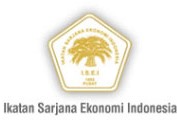The Role of Fintech and Digital Transformation in Renewable Energy Growth in Indonesia
(1) Gadjah Mada University
(2) State Islamic University of Sunan Kalijaga
Abstract
Keywords
Full Text:
PDFReferences
Aboalsamh, H. M., Khrais, L. T., & Albahussain, S. A. (2023). Pioneering Perception of Green Fintech in Promoting Sustainable Digital Services Application within Smart Cities. Sustainability, 15(14), 11440. Available at: https://doi.org/10.3390/su151411440.
Abokyi, E. et al. (2019). Industrial growth and emissions of CO2 in Ghana: The role of financial development and fossil fuel consumption. Energy Reports, 5, 1339–1353. Available at: https://doi.org/10.1016/j.egyr.2019.09.002.
Arena, M. et al. (2018). Unlocking finance for social tech start-ups: Is there a new opportunity space?. Technological Forecasting and Social Change, 127, 154–165. Available at: https://doi.org/10.1016/j.techfore.2017.05.035.
Azhgaliyeva, D. & Liddle, B. (2020). Introduction to the special issue: Scaling Up Green Finance in Asia. Journal of Sustainable Finance & Investment, 10, 1–9. Available at: https://doi.org/10.1080/20430795.2020.1736491.
Barroso, M. & Laborda, J. (2022). Digital transformation and the emergence of the Fintech sector: Systematic literature review. Digital Business, 2(2), 100028. Available at: https://doi.org/10.1016/j.digbus.2022.100028.
Beaudreau, B. C. (1995). The impact of electric power on productivity: A study of US manufacturing 1950–1984. Energy Economics, 17(3), 231–236. Available at: https://doi.org/10.1016/0140-9883(95)00025-P.
Ben Lahouel, B. et al. (2021). Does ICT change the relationship between total factor productivity and CO2 emissions? Evidence based on a nonlinear model. Energy Economics, 101, 105406. Available at: https://doi.org/10.1016/j.eneco.2021.105406.
Blakstad, S. & Allen, R. (2018) FinTech Revolution: Universal Inclusion in the New Financial Ecosystem. 1st ed. 2018 edition. New York, NY: Springer.
Boratyńska, K. (2019). Impact of Digital Transformation on Value Creation in Fintech Services: An Innovative Approach. Journal of Promotion Management, 25(5), 631–639. Available at: https://doi.org/10.1080/10496491.2019.1585543.
Breidbach, C. F., Keating, B. W. & Lim, C. (2020). Fintech: research directions to explore the digital transformation of financial service systems. Journal of Service Theory and Practice, 30(1), 79–102. Available at: https://doi.org/10.1108/JSTP-08-2018-0185.
Butu, H. M. et al. (2021). Leveraging community based organizations and fintech to improve small-scale renewable energy financing in sub-Saharan Africa. Energy Research & Social Science, 73, 101949. Available at: https://doi.org/10.1016/j.erss.2021.101949.
Cen, T. & He, R. (2018). Fintech, Green Finance and Sustainable Development. Advances in Social Science, Education and Humanities Research, 291, 222–225.
Chen, D. B. (2018). Central Banks and Blockchains: The Case for Managing Climate Risk with a Positive Carbon Price. in Transforming Climate Finance and Green Investment with Blockchains. Elsevier and Academic Press. Available at: https://doi.org/10.1016/C2017-0-01389-7.
Chenet, H., ryan-collins, Josh & van Lerven, F. (2019). Climate-Related Financial Policy in a World of Radical Uncertainty: Towards a Precautionary Approach. in Working Paper Series (IIPP WP 2019-13). UCL Institute for Innovation and Public Purpose. Available at: https://doi.org/10.2139/ssrn.3520224.
Cleveland, C. J. et al. (1984). Energy and the U.S. Economy: A Biophysical Perspective. Science, 225(4665), 890–897. Available at: https://doi.org/10.1126/science.225.4665.890.
CODES (2021) Accelerating Sustainability Through Digital Transformation Use Cases and Innovations. Coalition for Digital Environmental Sustainability. Available at: https://wedocs.unep.org/bitstream/handle/20.500.11822/40091/CODES_Supplement1.pdf?sequence=3 (Accessed: 26 January 2023).
Croutzet, A. & Dabbous, A. (2021). Do FinTech trigger renewable energy use? Evidence from OECD countries. Renewable Energy, 179, 1608–1617. Available at: https://doi.org/10.1016/j.renene.2021.07.144.
Dale, M., Krumdieck, S. & Bodger. (2012). Global energy modelling — A biophysical approach (GEMBA) Part 2: Methodology. Ecological Economics, 73, 158–167. Available at: https://doi.org/10.1016/j.ecolecon.2011.10.028.
Deka, A. & Dube, S. (2021). Analyzing the causal relationship between exchange rate, renewable energy and inflation of Mexico (1990–2019) with ARDL bounds test approach. Renewable Energy Focus, 37, 78–83. Available at: https://doi.org/10.1016/j.ref.2021.04.001.
Delina, L. L. (2023). Fintech RE in a global finance centre: Expert perceptions of the benefits of and challenges to digital financing of distributed and decentralised renewables in Hong Kong. Energy Research & Social Science, 97, 102997. Available at: https://doi.org/10.1016/j.erss.2023.102997.
Deng, X., Huang, Z. & Cheng, X. (2019). FinTech and Sustainable Development: Evidence from China Based on P2P Data. Sustainability, 11(22), 6434. Available at: https://doi.org/10.3390/su11226434.
Dorfleitner, G. & Braun, D. (2019) Fintech, Digitalization and Blockchain: Possible Applications for Green Finance. Palgrave Studies in Impact Finance. Palgrave Macmillan, 207–237. Available at: https://econpapers.repec.org/bookchap/palpsifcp/978-3-030-22510-0_5f9.htm (Accessed: 26 January 2023).
Feng, Y. et al. (2017). Interval Analysis and DEMA℡-Based Reliability Apportionment for Energy Consumption Optimization With Energy Internet. IEEE Access, 5, 4769–4778. Available at: https://doi.org/10.1109/ACCESS.2017.2672758.
Firdousi, S. F., Afzal, A. & Amir, B. (2023). Nexus between FinTech, renewable energy resource consumption, and carbon emissions. Environmental Science and Pollution Research, 30(35), 84686–84704. Available at: https://doi.org/10.1007/s11356-023-28219-z.
Ghali, K.H. & El-Sakka, M.I.T. (2004). Energy use and output growth in Canada: a multivariate cointegration analysis. Energy Economics, 26(2), 225–238. Available at: https://doi.org/10.1016/S0140-9883(03)00056-2.
Gimpel, H., Rau, D. & Röglinger, M. (2018). Understanding FinTech start-ups – a taxonomy of consumer-oriented service offerings. Electronic Markets, 28(3), 245–264. Available at: https://doi.org/10.1007/s12525-017-0275-0.
Guo, Y. et al. (2021). Asymmetric between oil prices and renewable energy consumption in the G7 countries. Energy, 226(120319). Available at: https://ideas.repec.org//a/eee/energy/v226y2021ics0360544221005685.html (Accessed: 26 January 2023).
Herjanto, E. & Widana, I. K. (2016). Policy Analysis: Solar Substitution with Biodiesel. Jurnal Pertahanan: Media Informasi ttg Kajian & Strategi Pertahanan yang Mengedepankan Identity, Nasionalism & Integrity, 2(2), 109–128. Available at: https://doi.org/10.33172/jp.v2i2.92.
Hommel, K. & Bican, P.M. (2020). Digital Entrepreneurship in Finance: Fintechs and Funding Decision Criteria. Sustainability, 12(19), 8035. Available at: https://doi.org/10.3390/su12198035.
Hu, B., Zhou, & Zhang, L. P. (2022). A digital business model for accelerating distributed renewable energy expansion in rural China. Applied Energy, 316, 119084. Available at: https://doi.org/10.1016/j.apenergy.2022.119084.
Ishida, H. (2015). The effect of ICT development on economic growth and energy consumption in Japan. Telematics and Informatics, 32(1), 79–88. Available at: https://doi.org/10.1016/j.tele.2014.04.003.
Kabulova, J. & Stankevičienė, J. (2020). Valuation of FinTech Innovation Based on Patent Applications. Sustainability, 12(23), 10158. Available at: https://doi.org/10.3390/su122310158.
Khan, K. et al. (2022). Is technological innovation a driver of renewable energy?. Technology in Society, 70, 102044. Available at: https://doi.org/10.1016/j.techsoc.2022.102044.
Khan, M. T. I., Yaseen, M. R. & Ali, Q. (2019). Nexus between financial development, tourism, renewable energy, and greenhouse gas emission in high-income countries: A continent-wise analysis. Energy Economics, 83, 293–310. Available at: https://doi.org/10.1016/j.eneco.2019.07.018.
Koetsier, J. (2020). Largest Distributed Peer-To-Peer Grid’ On The Planet Laying Foundation For A Decentralized Internet, Forbes. Available at: https://www.forbes.com/sites/johnkoetsier/2020/06/20/largest-distributed-peer-to-peer-grid-on-the-planet-laying-foundation-for-a-decentralized-internet/ (Accessed: 26 January 2023).
Lange, S., Pohl, J. & Santarius, T. (2020). Digitalization and energy consumption. Does ICT reduce energy demand?. Ecological Economics, 176, 106760. Available at: https://doi.org/10.1016/j.ecolecon.2020.106760.
Li, G., Jin, Y. & Gao, X. (2023). Digital transformation and pollution emission of enterprises: Evidence from China’s micro-enterprises. Energy Reports, 9, 552–567. Available at: https://doi.org/10.1016/j.egyr.2022.11.169.
Liao, M. & Ren, Y. (2020). The “double-edged effect” of progress in energy-biased technology on energy efficiency: A comparison between the manufacturing sector of China and Japan. Journal of Environmental Management, 270, 110794. Available at: https://doi.org/10.1016/j.jenvman.2020.110794.
Liaw, J. O. H. & Sa’ad, M. F. bin (2020). Digital Diplomacy: The Role Of Social Media. Solid State Technology, 63(6), 7511–7522.
Liu, H. et al. (2022). Impact of Green financing, FinTech, and financial inclusion on energy efficiency. Environmental Science and Pollution Research, 29(13), 18955–18966. Available at: https://doi.org/10.1007/s11356-021-16949-x.
Macchiavello, E. & Siri, M. (2020). Sustainable Finance and Fintech: Can Technology Contribute to Achieving Environmental Goals? A Preliminary Assessment of. Green FinTech’. European Banking Institute Working Paper Series, 71. Available at: https://doi.org/10.2139/ssrn.3672989.
Mendonça, A.K. de S. et al. (2020). Hierarchical modeling of the 50 largest economies to verify the impact of GDP, population and renewable energy generation in CO2 emissions. Sustainable Production and Consumption, 22, 58–67. Available at: https://doi.org/10.1016/j.spc.2020.02.001.
Menegaki, A. N. (2019). The ARDL Method in the Energy-Growth Nexus Field; Best Implementation Strategies. Economies, 7(4), 105. Available at: https://doi.org/10.3390/economies7040105.
Muganyi, T., Yan, L. & Sun, H. (2021). Green finance, fintech and environmental protection: Evidence from China. Environmental Science and Ecotechnology, 7, 100107. Available at: https://doi.org/10.1016/j.ese.2021.100107.
Nassiry, D. (2018). The role of fintech in unlocking green finance: Policy insights for developing countries. in ADBI Working Paper. Asian Development Bank Institute.
Neupane, D. (2023). Biofuels from Renewable Sources, a Potential Option for Biodiesel Production. Bioengineering, 10(1), 29. Available at: https://doi.org/10.3390/bioengineering10010029.
Ozturk, I. (2010). A literature survey on energy–growth nexus. Energy Policy, 38(1), 340–349. Available at: https://doi.org/10.1016/j.enpol.2009.09.024.
Pavlyk, V. (2020). Assessment of green investment impact on the energy efficiency gap of the national economy. Financial Markets, Institutions and Risks, 4(1), 117–123. Available at: https://doi.org/10.21272/fmir.4(1).117-123.2020.
Peixoto, P., Martinho, V. J. P. D. & Mourao, (2022). Corruption and Inflation in Agricultural Production: The Problem of the Chicken and the Egg. Economies, 10(11), 268. Available at: https://doi.org/10.3390/economies10110268.
Pesaran, M. H., Shin, Y. & Smith, R. J. (2001). Bounds testing approaches to the analysis of level relationships. Journal of Applied Econometrics, 16(3), 289–326. Available at: https://doi.org/10.1002/jae.616.
Puschmann, T., Hoffmann, C. H. & Khmarskyi, V. (2020). How Green FinTech Can Alleviate the Impact of Climate Change—The Case of Switzerland. Sustainability, 12(24), 10691. Available at: https://doi.org/10.3390/su122410691.
Raberto, M. et al. (2019). From financial instability to green finance: the role of banking and credit market regulation in the Eurace model. Journal of Evolutionary Economics, 29(1), 429–465. Available at: https://doi.org/10.1007/s00191-018-0568-2.
Ren, Y., Li, B. & Liang, D. (2023). Impact of digital transformation on renewable energy companies’ performance: Evidence from China. Frontiers in Environmental Science, 10. Available at: https://www.frontiersin.org/articles/10.3389/fenvs.2022.1105686 (Accessed: 16 September 2023).
Sahara et al. (2022). Economic impacts of biodiesel policy in Indonesia: a computable general equilibrium approach. Journal of Economic Structures, 11(1), 22. Available at: https://doi.org/10.1186/s40008-022-00281-9.
Schletz, M., Franke, L. A. and Salomo, S. (2020). Blockchain Application for the Paris Agreement Carbon Market Mechanism—A Decision Framework and Architecture. Sustainability, 12(12), 5069. Available at: https://doi.org/10.3390/su12125069.
Schumacher, K., Chenet, H. & Volz, U. (2020). Sustainable finance in Japan. Journal of Sustainable Finance & Investment, 10(2), 213–246. Available at: https://doi.org/10.1080/20430795.2020.1735219.
Soytas, U. & Sari, R. (2007). The relationship between energy and production: Evidence from Turkish manufacturing industry. Energy Economics, 29(6), 1151–1165. Available at: https://doi.org/10.1016/j.eneco.2006.05.019.
Tan, Q. et al. (2023). Fintech development, renewable energy consumption, government effectiveness and management of natural resources along the belt and road countries. Resources Policy, 80, 103251. Available at: https://doi.org/10.1016/j.resourpol.2022.103251.
Thompson, B. S. (2017). Can Financial Technology Innovate Benefit Distribution in Payments for Ecosystem Services and REDD+?. Ecological Economics, 139, 150–157. Available at: https://doi.org/10.1016/j.ecolecon.2017.04.008.
Tolliver, C. et al. (2021). Green Innovation and Finance in Asia. Asian Economic Policy Review, 16(1), 67–87. Available at: https://doi.org/10.1111/aepr.12320.
Tu, C. A. & Rasoulinezhad, E. (2021). Energy efficiency financing and the role of green bond: policies for post-Covid period. China Finance Review International, 12(2), 203–218. Available at: https://doi.org/10.1108/CFRI-03-2021-0052.
Ünlü, U. et al. (2022). Nexus between Renewable Energy, Credit Gap Risk, Financial Development and R&D Expenditure: Panel ARDL Approach. Sustainability, 14(23), 16232. Available at: https://doi.org/10.3390/su142316232.
Vergara, C. C. & Agudo, L. F. (2021). Fintech and Sustainability: Do They Affect Each Other?. Sustainability, 13(13), 7012. Available at: https://doi.org/10.3390/su13137012.
Vo, D. H. et al. (2022). Revisiting the energy-growth-environment nexus in the OECD countries: An application of the CS-ARDL approach. Energy, Sustainability and Society, 12(1), 47. Available at: https://doi.org/10.1186/s13705-022-00375-z.
Wang, L. et al. (2022). How big data drives green economic development: Evidence from China. Frontiers in Environmental Science, 10(1055162). Available at: https://www.frontiersin.org/articles/10.3389/fenvs.2022.1055162/full (Accessed: 26 January 2023).
Wen, H., Lee, C.-C. & Song, Z. (2021). Digitalization and environment: how does ICT affect enterprise environmental performance?. Environmental Science and Pollution Research, 28(39), 54826–54841. Available at: https://doi.org/10.1007/s11356-021-14474-5.
World Bank. (2018). Annual Report 2018.
World Bank. (2022). Fintech and the Digital Transformation of Financial ServicesFintech and the Future of Finance Flagship Technical Note. World Bank (Other Financial Sector Study). Available at: https://doi.org/10.1596/37340.
Xing, L., Sizov, G. & Gundersen, O. E. (2022). Digital Transformation in Renewable Energy: Use Cases and Experiences from a Nordic Power Producer. in Mikalef and E. Parmiggiani (eds) Digital Transformation in Norwegian Enterprises. Cham: Springer International Publishing, 63–89. Available at: https://doi.org/10.1007/978-3-031-05276-7_5.
Yu, M. et al. (2022). Digital finance and renewable energy consumption: evidence from China. Financial Innovation, 8(1), 58. Available at: https://doi.org/10.1186/s40854-022-00362-5.
Refbacks
- There are currently no refbacks.

This work is licensed under a Creative Commons Attribution 4.0 International License.







